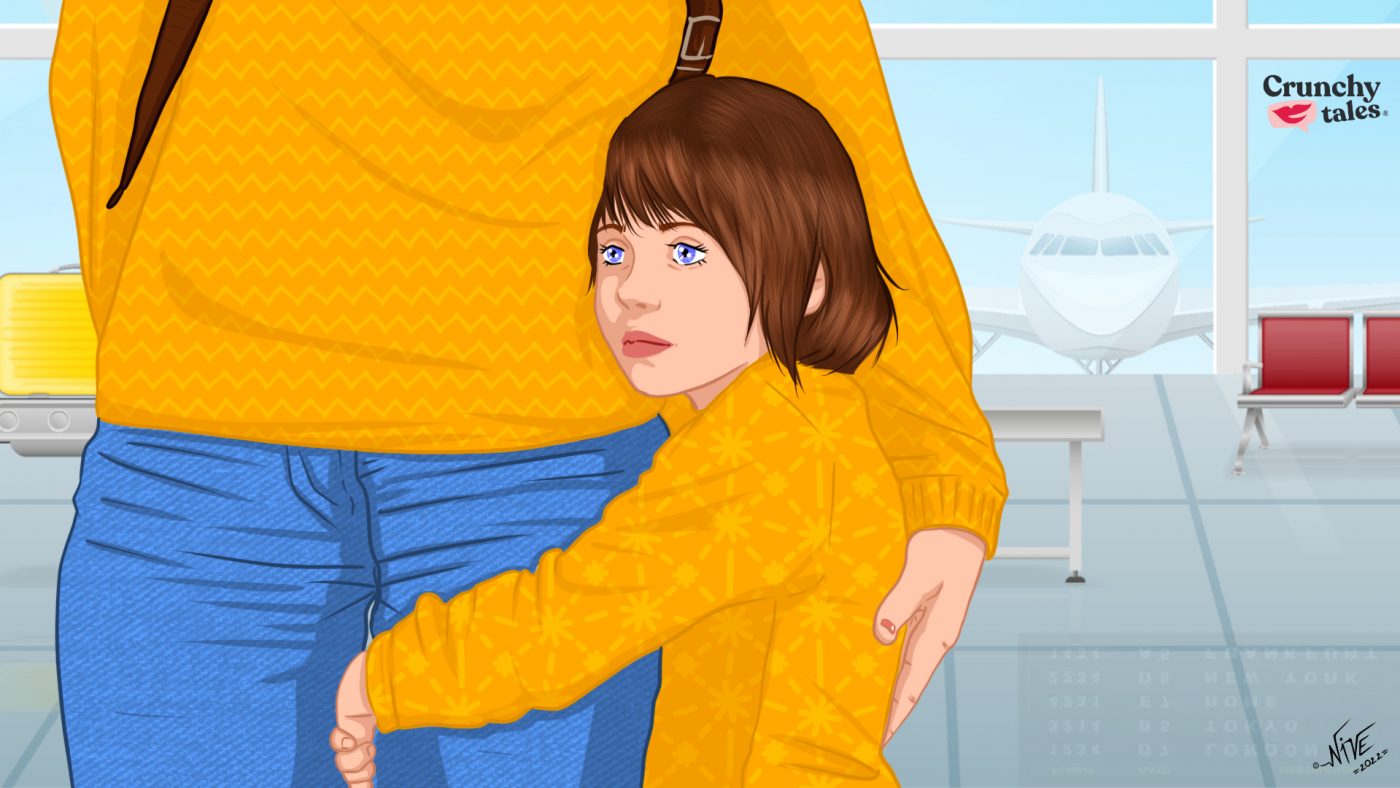How to Talk To Your Children About War
As much as we want to shield our children from the horrors of this world, they have a mobile device in their hands that literally pushes narrative and images to them 24/7. From grandiose acts of kindness to an ongoing war, they have a front-row seat to the best and worst of humanity.
This doesn’t take into account movies, television shows, video games, and music that also contain violence.
According to the American Academy of Paediatrics, children view as many as 8,000 murders by the time they reach middle school and over 100,000 violent acts by the time they’re 18. This ready access necessitates us to provide coping mechanisms, skills, and tools so our kids can process this information and grow through it rather than be taken down by it.
How can we support and comfort our kids?
As parents over 40, it’s our responsibility to help our children manage this difficult information without long term negative consequences such as anxiety, depression, or PTSD.
We are role models that must rise to the occasion for our kids in difficult times to help put things into perspective.
The first step is to check in with them and ask how much they know about the current conflict. There is a wide range of narratives available online and this is confusing, even to adults. Help your child navigate the facts, deconstructing the truth from the emotions, politics, and opinions of others.
Offering your child a sense of security is essential, too. Explain that although we can’t control what goes on outside of us, or in a crisis on the other side of the world, we can choose how we thoughtfully respond. This brings our locus of control back inside of us where we feel that we can make a difference, we gain confidence, and most importantly, we can foster hope.
Another tip is to put the violence in perspective. We are safe right now.
Help your child focus on the positive attributes that having compassion for others elicits within ourselves. In this way, we become more grateful for things in our lives that we might have overlooked if it wasn’t for the gift of a different frame of reference. Waking up in a comfy bed, in our own homes. Going to school and receiving an education. Having access to a flushing toilet and a warm shower! Living in a country where there is peace.
It’s also vital that we give kids an outlet for their emotions. Emotions are energy in motion and if they are not verbalized they will be reflected in our children’s behaviour. By speaking with them about the current war you are providing them with the verbiage to bring forth and express their fears.
Once put on the table, most of these fears will vanish and the rest can be coped within a healthier way.
Strike up a conversation with your child
With so much negative outside influence, it’s imperative that we manage our feelings and emotions and focus on maintaining a calm, connected, and compassionate environment.
The unfortunate fact is that there have always been wars and fighting. The good news is that there is a definitive start as well as an end to war: this current one will end and life will continue. This state of conflict does not go on forever and that is important to acknowledge.
Here are other ways we can help our children navigate war:
-
Actively Listen
Really listen, at every opportunity, to hear what our children are saying. They might make a comment on their way in or out the door. We can use that as a hook to engage them in conversation. Being present, which is necessary for active listening, shows your child that you care which will enhance the relationship in other areas as well, and help them feel safe.
-
Check in frequently
Ask, “How are you?” When you get the usual ‘fine,’ ask a second time. “How are you, really?” This opens the door and gives your child the understanding that you really care and want to know. Ask how the issues they talk about make them feel. This helps expand their self-awareness which will enable them to better comprehend their reactions to be able to manage them. It also provides them with confidence that you are willing to be a sounding board for their difficult feelings.
-
You don’t have to have the answers
A conversation might wander into a murky territory and they might have questions you don’t have answers for. Acknowledge that it’s all right not to have all the answers. Explain that answers can be revealed over time, and in different ways, which is why it’s important to remain curious. Offer to sit and write in a journal with your child to express uncertainty and come up with solutions.
-
Model Self-Care
Practice calming techniques such as tapping, havening, or healthy sleep hygiene in front of your children to show them the importance of taking care of themselves. Teach them to speak up for what they need and reward them if the request is appropriate by providing it to them, even if it’s a day off or especially if it’s time with you.
-
Offer ways to find relief
There are many strategies that provide us with a respite in the midst of turmoil. One is coming to the present moment by taking a deep breath and reminding ourselves that we’re safe. It’s important to practice these breaks for our brain to maintain equanimity.
-
Connection is key
Family dinners are a great way to connect. If you have a fireplace, start a fire. Pull out the board games, shuffle a deck of cards, or suggest a family outing. Walk your dog together. Offer to drive your child to pick up ingredients for their favourite meal. Use any and all opportunities to show you’re interested and that you care.
There is a lot going on in our world today that needs processing in our minds. The last few years have presented to most of us a relatively low but constant threat to our personal safety, and now the war in Ukraine has heightened our awareness. This introduces additional stress in our lives that we must dissect into either an immediate threat or challenge.
It is our job as parents over 40 to help our children traverse these unsteady times with courage and grace.
Like this post? Support Us or Sign up to our newsletter to get more articles like this delivered straight to your inbox!






